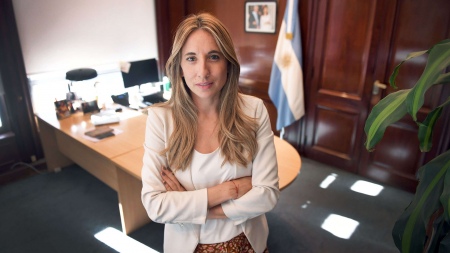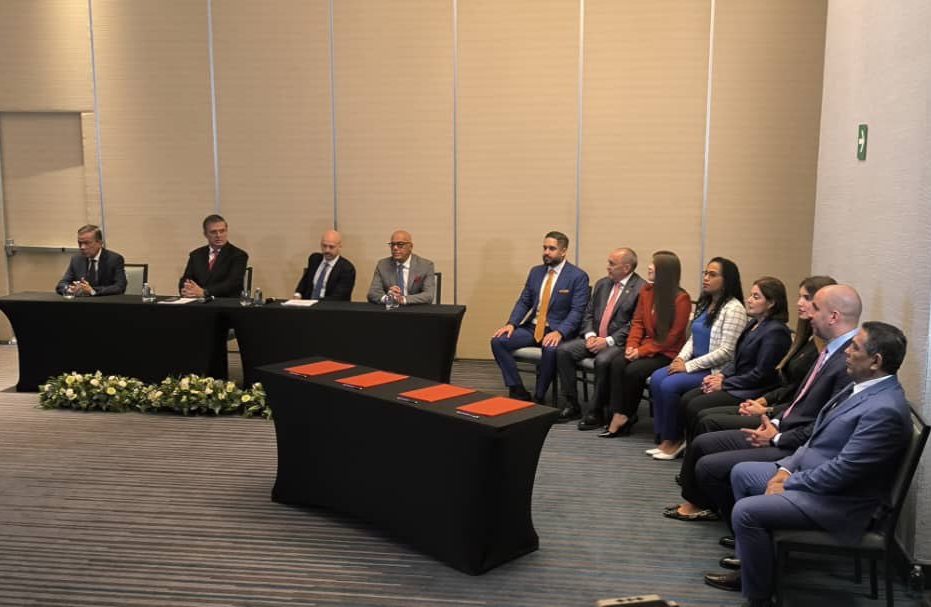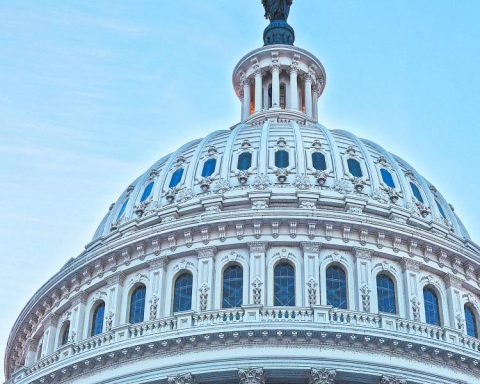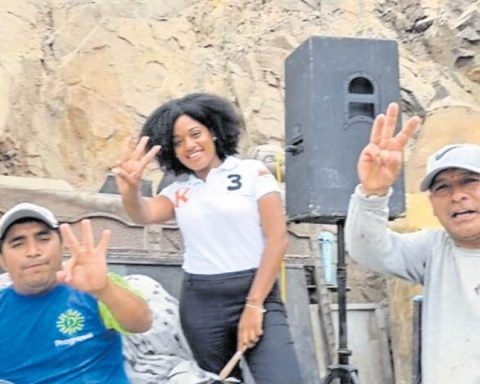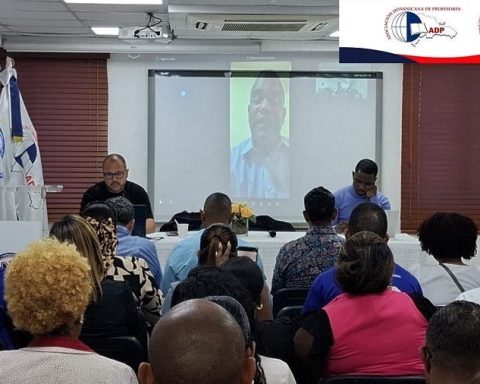The Secretary of Climate Change, Sustainable Development and Innovation, Cecilia Nicoliniassured that “climate change is a profoundly economic discussion” and part “of many inequalities”, 9 days after the closing of COP27, the United Nations conference on Climate Change that took place in the Egyptian city of Sharm el-Sheikh from November 6 to 18.
“Climate change is a deeply economic discussion. It starts from many inequalities and if you put it in global terms, the richest countries are those that historically contributed the most to the emission of greenhouse gases and they continue to do so,” said Nicolini in dialogue with Télam after leading the negotiations on behalf of the country in Egypt.
The most important meeting on climate change was convened in the context of a growing energy crisis, record concentrations of greenhouse gases and the increase in extreme weather events, with the increasingly distant goals established in the historic Paris Agreement of 2015.
“It is a balance in tables. We found considerable advances in an agenda that Argentina and the global south had been pushing, but we expected much more correlation between the discourse of developed countries and the actions they implement since there is big gap on funding“Nicolini said.
“Argentina lost in the last 20 years more than 24 billion dollars with soybeans and corn due to events related to the climate crisis.”Cecilia Nicolini
In this sense, the official of the Ministry of Environment and Sustainable Development maintained that the measures against the increase in global temperatures “are only ambitions if you do not have the means of implementation to be able to move forward, they leave a bitter taste.”
At the United Nations climate meeting, where almost 200 countries participated in the discussionsaddressed the problem of losses and damages caused by the impacts of climate change, which resulted in the inclusion, for the first time in history, thanks to the efforts of the southern countries, of the creation of an aid fund for developing nationsof which the details have not yet been specified.

“It is a claim that had been requested for a long time and of which there was not even a hint of including it in the past negotiations. This fund for developing countries is positive, which are the most affected by climate changebut there are still no details about how it is going to be financed, how much it is going to be or to whom it is going to be directed in particular”, Nicolini asserted and explained that “Argentina is among the countries that contribute the least to the emission of greenhouse gases and what more impacts it has”.
The official opined that “it would be foolish to deny the consequences that we are already experiencing with climate change” and specified that Argentina lost more than 24 billion dollars in soybeans and corn in the last 20 years due to events related to the climate crisis.
At COP 27, the goal established in the Paris Agreement of not exceeding 1.5°C of global warming by mid-century was once again discussed, where once again the divergences between countries on how to implement the energy transition that allows progressively fossil fuels.
Patagonia: they investigate with satellite images the accelerated melting of snow sheets
✍️ Jules Mosle https://t.co/4Xw1JqHbPz
– Telam Agency (@AgenciaTelam) November 26, 2022
“There is a difference about the means of implementation, if we want reduce emissions 45% by 2030 there has to be a financial and economic correlate to make these transitions, especially for developing countries that they do not have the means to carry out these transformations in the productive, energy and infrastructure matrices,” said Nicolini.
The Secretary for Climate Change highlighted that in Argentina’s 2030 National Climate Change Mitigation and Adaptation Plan “we updated the goal last year and made it 30% more ambitious than what was proposed in 2016, at the level of developed countries” .
“We seek not to exceed 349 megatonnes of carbon dioxide equivalent by 2030 and have committed to our long-term strategy of achieving carbon neutrality by 2050,” he said.
According to the National Inventory of Greenhouse Gases and Monitoring of Mitigation Measures, in Argentina 50.7% of emissions are produced by the energy sector, especially by electricity generation and transportation, while the agriculture sectors , livestock, forestry and other land uses account for 39.1%, followed by industrial processes and product use with 5.7% and waste with 4.5%.

Finally, Nicolini insisted on the project that President Alberto Fernández named on several occasions in international meetings on the exchange of external debt for climate action.
“It is one of the proposals that Argentina makes together with other countries of the global south because we are environmental creditors of our financial creditors, that is real. We have to find the mechanisms to value the ecosystem services that our territories generate in the absorption of carbon dioxide of carbon,” he said.
Discussions on climate change will resume at COP 28, which will take place from November 30 to December 12 of next year in the United Arab Emirates.
“The climate discussion has to be an opportunity for transformation, to create employment, to generate more equality, to have a more harmonious coexistence with our environment, to make our countries more resilient,” said Nicolini and concluded that “the inexorable reality is that there is a climate change that is affecting, it is up to us if we can live with it”.
Environmentalists cautiously assessed the creation of the Damages and Losses Fund at COP27
Socio-environmental organizations valued the creation of the Fund for Damages and Losses that arose at the United Nations conference on Climate Change (COP27), which took place in Sharm el-Sheikh, Egypt, but criticized that “the discussion on the use of fossil fuels.
The novelty of COP27 was the creation for the first time in history of a fund dedicated to developing countries to address the problem of losses and damages caused by the impacts of climate change, a historical claim of the countries of the global south, although not the details of that agreement have been specified so far.
“The progress of damages and losses is positive, but what was said is that it is going to be created. It is not defined who is going to put the money, who is going to receive it, or when. This historical reparation has been discussed for decades developed countries. Until this year it was not on the agenda, it was discussed in the corridors,” Eyal Waintrub, a member of Youth for Climate, told Télam, who participated in the two weeks at COP27 in Egypt.
Waintrub reported that in the discussion on damages and losses, the United States was one of the great opponents of the creation of the fund, but then “an intermediate proposal appeared between the developed countries, which were opposed, and the non-developed countries, which wanted the repair”.
Jazmín Rocco Predassi, co-coordinator of the Climate Policy area of the Fundación Ambiente y Recursos Ambientales (FARN), said that the creation of the fund “was a claim for many years from the most vulnerable countries and from the civil society, which transcends what is mitigation and adaptation, which are the two pillars to deal with climate change”.
“It was possible to reach a consensus to establish it, but the unknown that remains is how they are going to settle. It is one more step towards climate justice but it has to be accompanied by strong mitigation led by developed countries, which are the ones that most contaminate, although all countries have to make their contribution,” he said in dialogue with Télam.
From the socio-environmental organizations it was again claimed that the abandonment of fossil fuels as an energy matrix was not incorporated into the final document of the meeting.
“The discussion on the use of fossil fuels has not advanced since COP26, when there was talk of a progressive reduction in subsidies for this activity. It was a very stuck negotiation, many differences between developed and developing countries on implementation of the programs by 2030,” Predassi said.
“None of the documents mention the word oil, they talk about reducing emissions. Next year the COP will be in the United Arab Emirates and the president is always more relevant because he is the one who writes the document, it is worrying,” Waintrub said about COP28, which will be held in the Arab country from November 30 to December 12 of next year.
Lastly, the environmental activists valued the installation of climate change in the public discussion and argued that it is necessary to continue generating awareness in all the actors of society.
“We must continue deepening and generating actions so that citizen awareness increases and mainly so that financial flows begin to invest in renewable energy and the green economy to change the matrix of production and consumption,” Waintrub highlighted.
